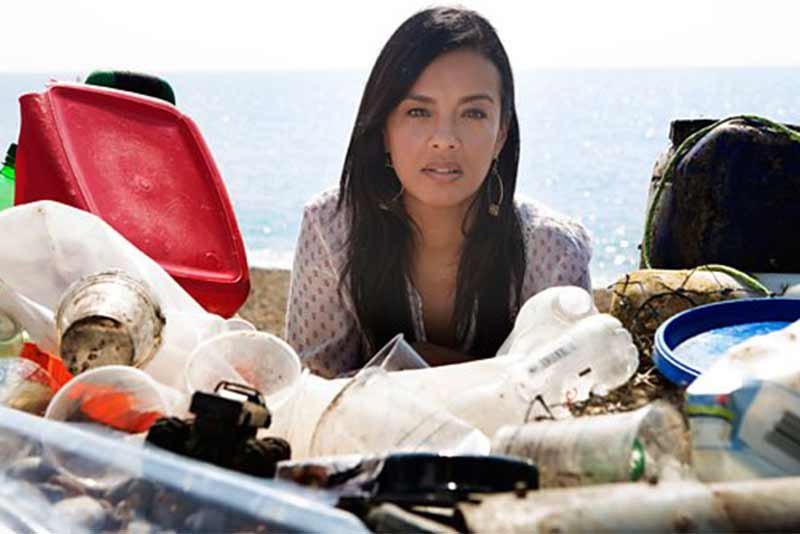The truth behind the BBC’s Drowning in Plastic documentary
The impact of plastic waste on the environment has become an increasing concern for both businesses and consumers alike. This is something that’s hardly surprising, as more and more awareness is being raised about the impact plastic
waste (and other waste materials) is having on our planet, particularly when it’s sent to landfill. Here it emits methane, CO2, and other greenhouse gases into the air, which causes natural disasters by raising the Earth’s
temperature and sea levels. However, another major concern is the amount of plastic waste that is blown away from landfill sites and instead ends up polluting our seas and oceans. This is an issue that has been recently brought
to light in the media, primarily through the BBC documentary, Drowning in Plastic.
 ?
?
Originally broadcast on BBC One on 1st October 2018, the documentary follows presenter and wildlife biologist, Liz Bonnin, as she explores the devastating impact plastic waste is having on the Earth’s oceans and the creatures that
inhabit it. Drowning in Plastic also shockingly brings to light the fact that around the world, we buy a million plastic bottles, a million disposable cups and two million plastic bags every minute. Additionally, only
11% of this plastic waste is currently being recycled.
As well as the eye-opening BBC documentary, a recent report by the UN Intergovernmental Panel on Climate Change (IPCC) also stressed the importance of changing our Earth-damaging habits before it’s too late. As The Guardian explains, the report indicates that we have just 12 years to keep the planet’s temperature to a maximum of 1.5C. Preventing it from rising by just half a degree could help slow the decline
in Arctic sea ice and the eradication of corals.
Alongside providing a home for 2.2million species of marine life and over half of the oxygen landlocked creatures need to breath, our planet’s seas and oceans are also valuable for helping to prevent climate change. In fact, around
40% of CO2 we emit is absorbed by ocean waters. However, this could change if we don’t reduce the volume of waste not being recycled, as the planet and its water sources will get warmer. Unfortunately, colder water is better
at absorbing CO2 than warm water, which has led some scientists to believe that our oceans will become less effective at absorbing it if the Earth continues to get warmer.
In the BBC’s Drowning in Plastic documentary, Liz Bonnin also brings attention to the fact that aquatic life is consuming much of the plastic that ends up in oceans, all the way from plankton to walruses. In one scene,
a team of scientists make a flesh-footed seawater chick swallow water and vomit 20 pieces of plastic into a bowl. Sadly, the record number of plastic pieces found inside a single chick is 260.

The next morning, the documentary shows the team gathering weak chicks from the beach. These are so weighed down by plastic that they’re unable to get past the surf and into the sea. The documentary shows one dying chick being
wrapped in a blanket as nothing else can be done to help it.
What your business can do to save our oceans from plastic
One of the simplest ways for businesses to start reducing their carbon footprint is by recycling as many of their waste materials as possible. As a starting point, make sure you have easily accessible recycling bins on site for
both staff and customers to use, and that these are clearly labelled to ensure different waste materials are put in the correct one.
To help make this a success, you should be engaging with both your staff and your customers. Set-up an initiative to educate your employees on how to correctly recycle (and the importance of doing so), and ask your customers what
they would be willing to sacrifice in order to reduce their environmental impact. Whether this is cost or packaging, you can incorporate their suggestions as part of your efforts to reduce your business’s carbon footprint.
Investing in a waste baler will also increase the amount you recycle by making it quicker and easier to do so. This is because they segregate
different waste materials (such as cardboard and plastic) for you. Engage with phs Besafe for a free Wastesaving Audit, and we’ll give you recommendations
on how your business can reduce your environmental impact and even reduce your waste disposal costs.
To find out more about how a waste baler or compactor can help your business save money and our planet, contact us for a free
Wastesaving Audit.